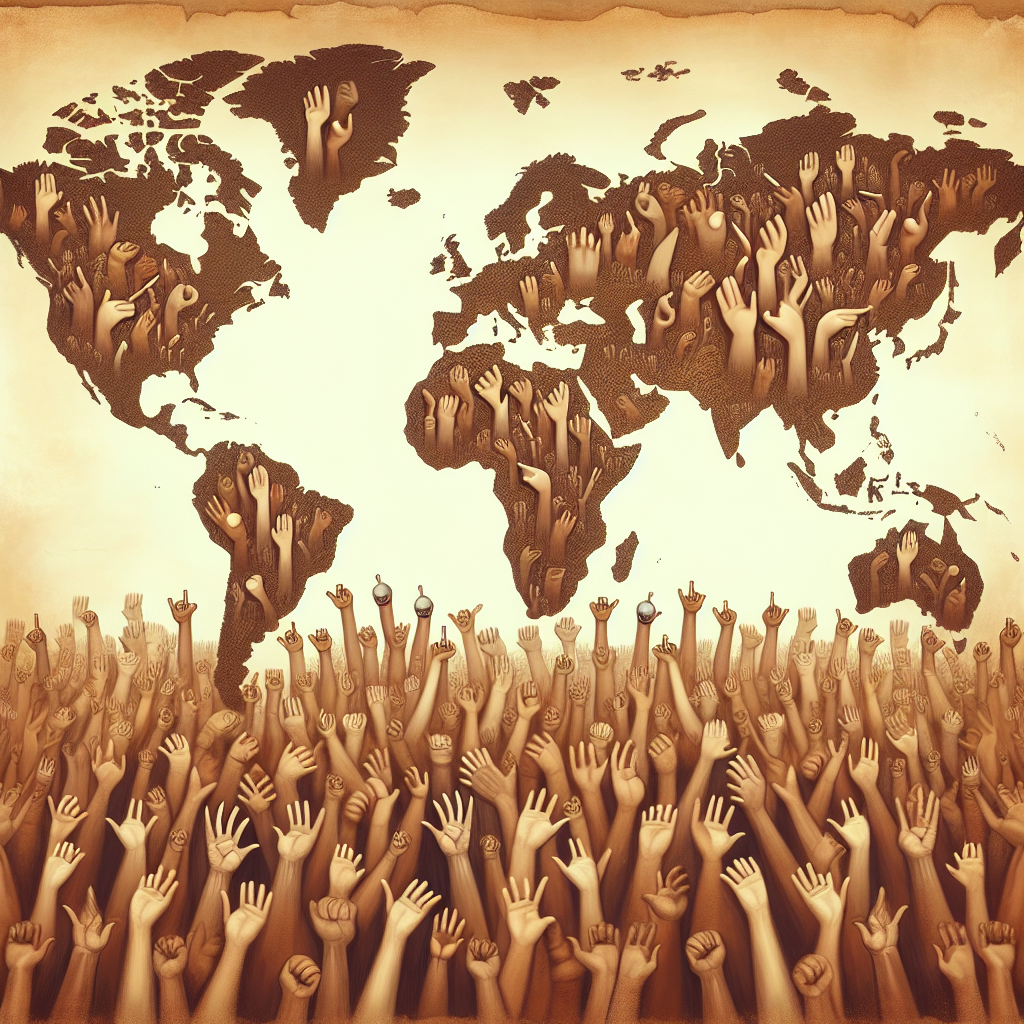
Introduction
Election Night holds a unique significance in the realm of politics, eliciting powerful emotional responses from journalists, voters, and candidates alike. As the results trickle in and the fate of the nation hangs in the balance, journalists find themselves at the emotional epicenter of this nationwide event, grappling with both the pressures of reporting and the sentiments of a polarized electorate. The emotional impact of Election Night is profound and multifaceted, shaping not only the narratives of the night but also the personal and professional lives of those involved. In this article, we will explore the emotional landscape of Election Night from a journalist’s perspective, examining the highs and lows experienced by those tasked with covering this monumental occasion.
The Highs and Lows of Reporting on Election Night
Reporting on Election Night presents a unique set of emotional challenges for journalists. The atmosphere is electric, filled with anticipation and anxiety as numbers begin to flow in. On one hand, journalists often experience adrenaline rushes, fueled by the urgency to deliver accurate and timely news updates to their audience. The stakes are incredibly high, and the pressure to perform can lead to a thrilling sense of purpose. Yet, this exhilaration is often punctuated by moments of despair and doubt, particularly when unexpected outcomes unfold. As a direct witness to the reactions of voters, candidates, and party supporters, journalists are uniquely positioned to absorb the collective emotions of the nation, making their role even more impactful.
In 2025, as journalists navigated an increasingly polarized political climate, the emotional effects of reporting became even more pronounced. Coverage was not just about numbers; it was about people’s lives, feelings, and futures. Reporters often encountered euphoric celebrations in one location and somber gatherings in another, mirroring the divided mood of the country. These contrasting emotional landscapes require journalists to adapt quickly, applying sensitivity and professionalism as they report on starkly different reactions. The emotional weight of their duties can lead to mental exhaustion, necessitating strong coping mechanisms to maintain focus.
Challenges of Maintaining Objectivity During Emotional Turmoil
One of the greatest challenges faced by journalists on Election Night is maintaining objectivity while experiencing their own emotions. The inherent emotional atmosphere can blur the lines of professional detachment, leading to a struggle between personal beliefs and journalistic integrity. This is especially relevant in the context of a deeply divided electorate, where reporters may find themselves sympathizing with one side in the face of passionate supporters and opposite viewpoints. The responsibility to provide fair and balanced coverage can weigh heavily on journalists, who must navigate their emotional responses while delivering facts to the public.
In the 2025 elections, the intensity of partisanship has reached unprecedented levels, further complicating the task of journalists. The stakes have never felt higher, leading to heightened emotional responses not just among the electorate, but within the media itself. Journalists are often surrounded by colleagues with varying opinions, which can create an environment filled with tension. As they cover live events, such as rallies or concession speeches, the struggle to maintain a sense of impartiality while confronting their own beliefs becomes an emotional rollercoaster. It’s a balancing act that must be managed with professionalism, underscoring the psychological demands of the job.
The Responsibility of Capturing the Nation’s Mood
One of the critical responsibilities of journalists on Election Night is to encapsulate and convey the nation’s mood accurately. This involves not only reporting on the numbers but also sharing the emotional reactions of both jubilant supporters and devastated opponents. For journalists, capturing these emotions requires a nuanced understanding of the political landscape and an ability to synthesize spontaneous moments of human reaction into compelling narratives. As the night progresses, it becomes increasingly important for journalists to connect with voters and articulate the sentiments that transcend the numerical data.
Additionally, the emotional aftermath of Election Night can resonate far beyond the day itself. Journalists have the task of framing the implications of the results for the country, addressing both hope and fear as they relate to the elections. The complexity of human emotions demands that journalists approach their stories with empathy and depth, often drawing on personal anecdotes from voters and communities that reflect their reality. The ability to balance factual reporting with emotive storytelling can set a journalist’s work apart, leading to pieces that resonate profoundly with the audience and create an emotional connection.
As we delve deeper into the responsibilities of journalists on Election Night, it becomes evident that emotional sensitivity is just as important as factual accuracy. In an era of misinformation and skepticism toward the media, journalists must strive to reassure viewers that their coverage is grounded in reality. This can be achieved by acknowledging the emotional weight of the election results while providing context and clarity on what these results mean. Hence, the emotional impact of Election Night extends far beyond individual experiences; it shapes narratives that influence public perception and understanding.
The Impact of Social Media and Instant Feedback
In 2025, the rise of social media has exponentially changed the landscape of journalism on Election Night. Instantaneous feedback from viewers online means that journalists are not only reporting the news but are actively engaging and interacting with an audience that is ready to share its opinions and emotions. This immediacy can amplify the emotional impact of the night, as journalists often receive real-time reactions that range from ecstatic joy to harsh criticism. The dual role of reporter and public engagement can create a chaotic emotional environment that journalists must navigate carefully.
Social media can also foster community, allowing people to share their electoral experiences and emotions with a broader audience. Both journalists and voters participate in discussions, creating a dialogue about not just the facts of the election but the feelings surrounding them. However, the emotional turbulence can occasionally lead to burnout for journalists confronted with opinions and hostility that challenge their professional stance. The overwhelming nature of this feedback loop necessitates that journalists cultivate resilience and strategies for managing their emotions while actively participating in the social media landscape.
As the digital divide grows, so too does the responsibility for journalists to address the diverse emotional responses stemming from various demographic segments. In the multifaceted connections fostered by social media, journalists have an opportunity to illuminate the often-overlooked perspectives of marginalized voices who may experience the election results differently. By proactively seeking out these narratives, journalists can enrich their coverage and foster empathy among viewers, bridging divides that might otherwise remain entrenched in silence.
Strategies for Emotional Resilience in Journalism
Given the emotional rollercoaster that accompanies Election Night, it’s essential for journalists to employ strategies for emotional resilience. The intense demands of reporting can easily lead to stress and burnout, so implementing healthy coping mechanisms is vital. Simple techniques, such as mindful breathing and taking moments of pause, can make a significant difference in regulating emotions amidst the chaos of live reporting. Journaling experiences after the election can also provide a therapeutic outlet, allowing journalists to process their feelings and gain perspective on the emotional weight of their work.
Moreover, maintaining a supportive network of colleagues is invaluable for journalists. Sharing the highs and lows of Election Night with fellow reporters can foster a sense of camaraderie and understanding. Whether through formal debriefings or casual conversations, these interactions can help journalists navigate their emotional responses collectively. Organizations that prioritize mental health and emotional wellness can significantly enhance journalists’ resilience, leading to more sustainable careers in a demanding industry.
Finally, focusing on the purpose behind the work can fortify resilience during emotionally charged events like Election Night. Understanding that the role of journalists is not merely to report but to serve a vital function in a democracy can provide a deeper sense of meaning. By connecting their emotional experiences to this greater purpose, journalists can find strength in the challenges they face, enabling them to emerge not only as stronger professionals but also as advocates for informed public discourse.
Conclusion
The emotional impact of Election Night from a journalist’s perspective is a complex interplay of exhilaration, stress, and responsibility. From the electrifying highs of breaking news to the somber weight of outcomes that divide communities, the emotional landscape is one that demands resilience, professionalism, and empathy. As journalists cover the multifaceted experiences of voters and communities, they simultaneously navigate their own emotional responses to the stories they tell. Ultimately, acknowledging and addressing these emotional challenges not only enhances the coverage but also promotes a healthier, more sustainable environment for journalists in an increasingly demanding landscape.
FAQs
What are the emotional challenges journalists face on Election Night?
Journalists encounter high levels of stress, the struggle to maintain objectivity, and the pressure to accurately represent the emotional reactions of voters and communities.
How can journalists maintain professionalism while feeling emotional?
By employing coping strategies such as mindfulness, building supportive networks, and focusing on the purpose of their work, journalists can navigate their emotions more effectively.
What role does social media play in the emotional experience of journalists on Election Night?
Social media increases the immediacy of feedback, potentially amplifying emotions while also providing a platform for community engagement and diverse storytelling.
Why is empathy important in election reporting?
Empathy allows journalists to connect more deeply with the narratives they are covering, creating richer, more human-centered stories that resonate with the audience.
What strategies can journalists use to prevent burnout during high-stress events?
Incorporating self-care practices, maintaining strong professional relationships, and periodically reflecting on their emotional experiences can help journalists manage stress and prevent burnout during intense periods like Election Night.
Democracy versus Autocracy: A Global Perspective
16. Dezember 2025The Impact of Sanctions on Global Trade Dynamics
16. Dezember 2025Geopolitical Tensions in the South China Sea
16. Dezember 2025
Leave a reply Antwort abbrechen
-
The Evolution of Sports Rankings Over the Decades
20. November 2025 -
The Rise of Populism in Global Politics
24. November 2025 -
The Art of Defending: How It Affects Final Scores
30. November 2025





